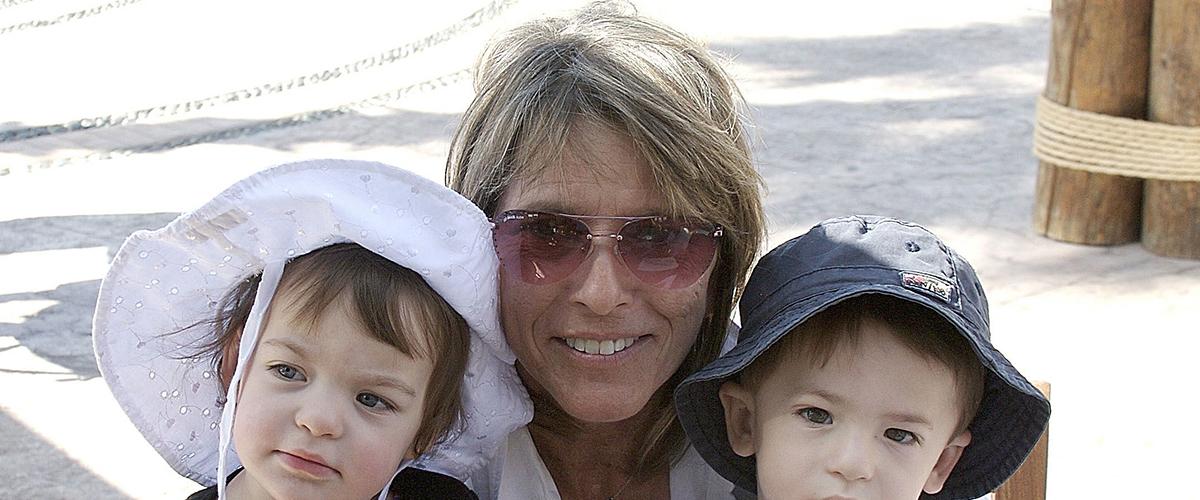Learn about the current developments in DM2 research. Moderated by Dr. Johanna Hamel of University of Rochester. Panelists will include Dr. Paloma Gonzalez-Perez of the Massachusetts General Hospital, and MDF Research Fellows Dr. Raphael Benhamou of Scripps Research Institute and Dr. Jana Jenquin of University of Florida.
Presented during the Understanding DM Research and Progress Track at the MDF 2020 Virtual Conference.
About the presenters:
Johanna Hamel, MD
Dr. Hamel is a neuromuscular specialist and assistant professor of neurology, pathology and laboratory medicine at the University of Rochester, NY. She cares for patients with myotonic dystrophy type 1 and type 2 in clinic and conducts clinical research studying outcome measures and the disease mechanism, along with Dr. Charles Thornton and the UR Wellstone Center DM research team. She was awarded the 2017 Clinical Research Training Fellowship in Muscular Dystrophy cosponsored by the American Academy of Neurology, Muscular Dystrophy Association and American Brain Foundation for her project focused on DM2 and studies on the underlying mechanism of RNA toxicity. Her first contact with patients with myotonic dystrophy type 2 dates back to when she was a medical student in Germany, which prompted her to pursue a career in neurology. After working in Berlin for 2 years as a resident and researcher, she completed her neurology residency and neuromuscular fellowship in Rochester, NY.
Jana Jenquin, PhD
After receiving her undergraduate degree in biochemistry, Jana worked as an analytical and quality assurance chemist in industry. In 2014, Jana decided to continue her education at the University of Oregon in the Department of Chemistry and Biochemistry to obtain her doctorate in biochemistry. Jana transferred to the University of Florida in 2015 when her research advisor, Dr. Andrew Berglund, accepted a faculty position with their Department of Biochemistry and Molecular Biology. Her research in the Berglund group primarily focused on small molecule therapeutic approaches for myotonic dystrophy (DM). Her thesis work aimed on understanding the mechanisms through which the class of molecules known as diamidines functioned to reduce the toxicity of expanded CUG and CCUG repeats in DM (Jenquin et al, ACS Chemical Biology 2018). Jana also showed that an oral version of furamidine (pafuramidine) combined with erythromycin could be used as an oral combination treatment to rescue more events than either drug alone (Jenquin et al, ACS Pharmacol. Transl. Sci. 2019). Dr. Jenquin has chosen to remain in the DM field and is pursuing her postdoctoral training through a joint appointment in the lab of Drs. Eric Wang and Andrew Berglund at the University of Florida.
Raphael Benhamou, PhD
Raphael I. Benhamou obtained his B.Sc. degree in Chemistry and Biology with honors and his Ph.D. from Tel Aviv University, Israel, focusing on the development of new antimicrobial drugs in the lab of prof. Micha Fridman. From December 2018, he is a postdoctoral fellow at Scripps with Dr. Matthew D. Disney and starting in 2020 is a MDF fellow. His main research interest resides in the design of small molecules to drug toxic RNA repeat expansions causing myotonic dystrophy type 1 and 2. His work in the lab is majorly focusing on developing rational and predictable approaches to design highly selective therapeutics for myotonic dystrophy type 2. The experience gained from this work has contributed to both the overall advancement towards development of small molecule therapeutics in myotonic dystrophy and also in achieving his long-term goals, which is to work at the interface of chemistry and biology in deciphering disease mechanisms, identifying novel targets and subsequent drug discovery efforts in the field of neurodegenerative diseases. Moreover, this training provides him the tools and the knowledge, preparing him for a future career as an independent investigator. Paloma Gonzalez-Perez, MD, PhD Dr. Paloma Gonzalez-Perez is a MD, PhD and neuromuscular neurologist at Massachusetts General Hospital, where she directs the Myopathy Clinic and conducts research in the field of muscular dystrophies at Dr. Thurman Wheeler’s lab. She obtained her MD at University of Navarra (Spain), and completed two Neurology residencies, at University Hospital Virgen del Rocio in Seville (Spain) – her home town- and University of Iowa, as well as the Partners Neuromuscular fellowship. She obtained her PhD in genetics of ALS as result of her work in Dr Robert Brown’s lab at University of Massachusetts Medical School. She was a recipient of the NINDS R25 fellowship and has been recently awarded with a Clinical Research Scholarship by the Muscle Study Group in collaboration with the American Academy of Neurology and American Brain Foundation to investigate molecular biomarkers in myotonic dystrophy type 2.

